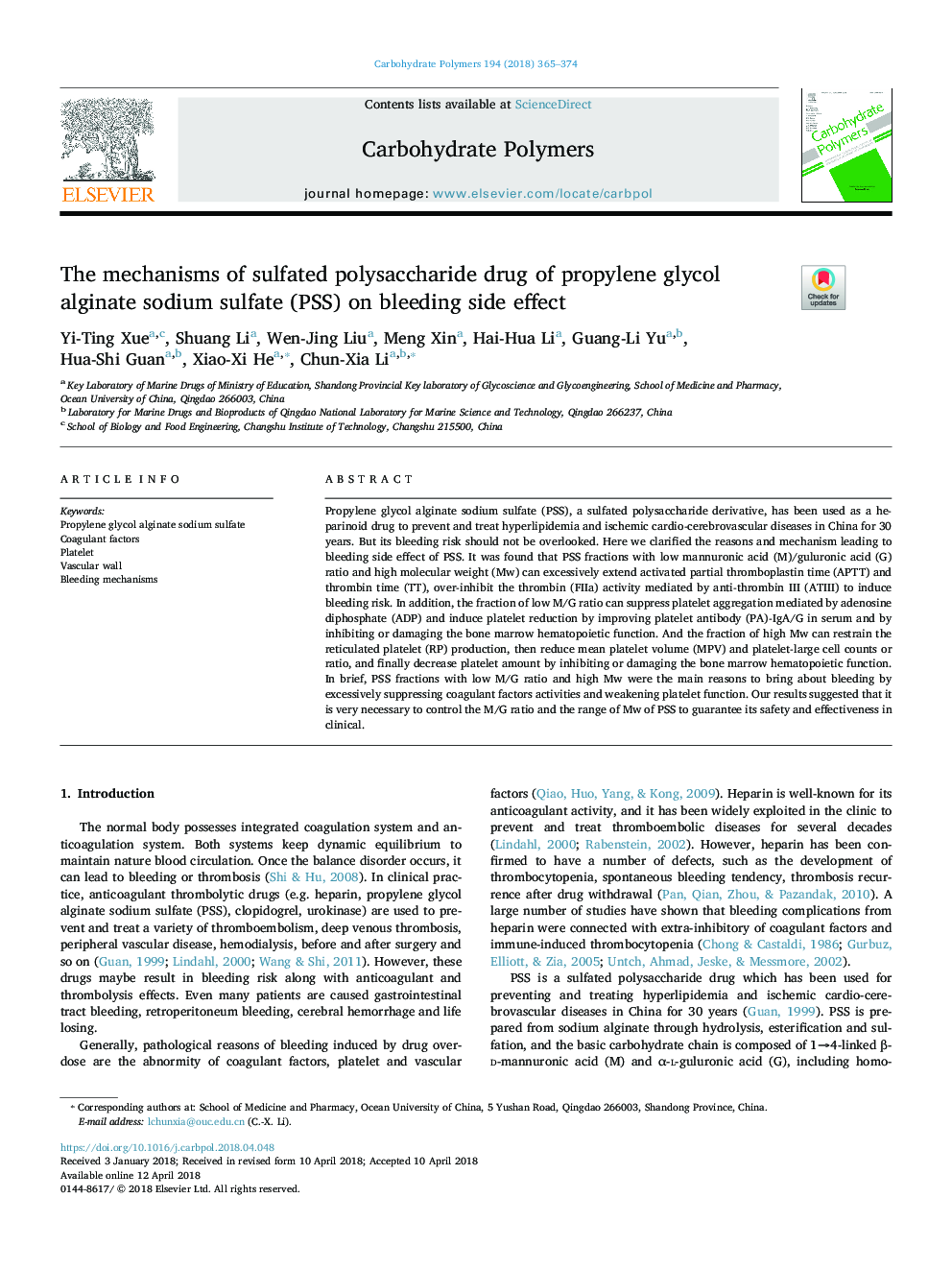| Article ID | Journal | Published Year | Pages | File Type |
|---|---|---|---|---|
| 7782450 | Carbohydrate Polymers | 2018 | 10 Pages |
Abstract
Propylene glycol alginate sodium sulfate (PSS), a sulfated polysaccharide derivative, has been used as a heparinoid drug to prevent and treat hyperlipidemia and ischemic cardio-cerebrovascular diseases in China for 30 years. But its bleeding risk should not be overlooked. Here we clarified the reasons and mechanism leading to bleeding side effect of PSS. It was found that PSS fractions with low mannuronic acid (M)/guluronic acid (G) ratio and high molecular weight (Mw) can excessively extend activated partial thromboplastin time (APTT) and thrombin time (TT), over-inhibit the thrombin (FIIa) activity mediated by anti-thrombin III (ATIII) to induce bleeding risk. In addition, the fraction of low M/G ratio can suppress platelet aggregation mediated by adenosine diphosphate (ADP) and induce platelet reduction by improving platelet antibody (PA)-IgA/G in serum and by inhibiting or damaging the bone marrow hematopoietic function. And the fraction of high Mw can restrain the reticulated platelet (RP) production, then reduce mean platelet volume (MPV) and platelet-large cell counts or ratio, and finally decrease platelet amount by inhibiting or damaging the bone marrow hematopoietic function. In brief, PSS fractions with low M/G ratio and high Mw were the main reasons to bring about bleeding by excessively suppressing coagulant factors activities and weakening platelet function. Our results suggested that it is very necessary to control the M/G ratio and the range of Mw of PSS to guarantee its safety and effectiveness in clinical.
Related Topics
Physical Sciences and Engineering
Chemistry
Organic Chemistry
Authors
Yi-Ting Xue, Shuang Li, Wen-Jing Liu, Meng Xin, Hai-Hua Li, Guang-Li Yu, Hua-Shi Guan, Xiao-Xi He, Chun-Xia Li,
